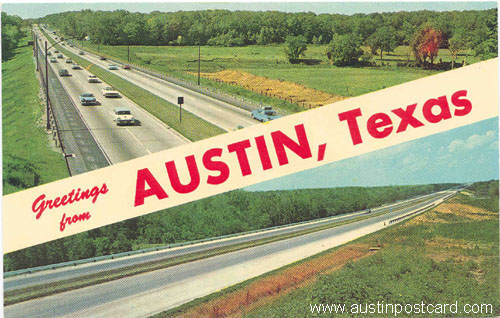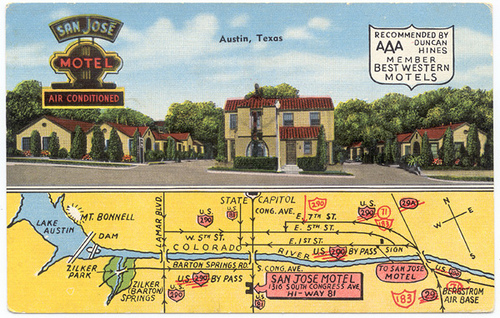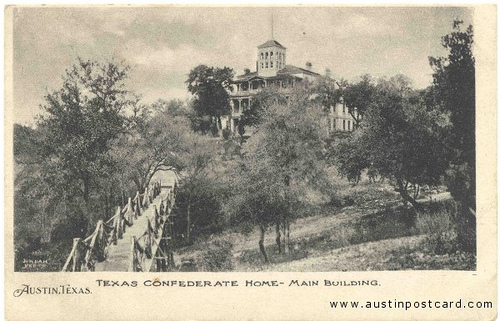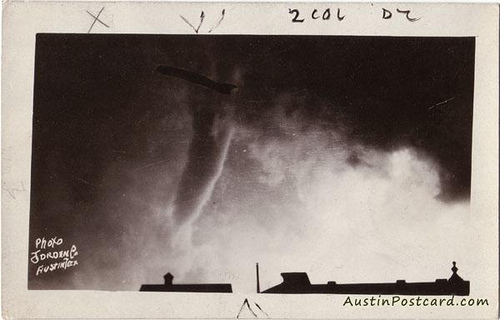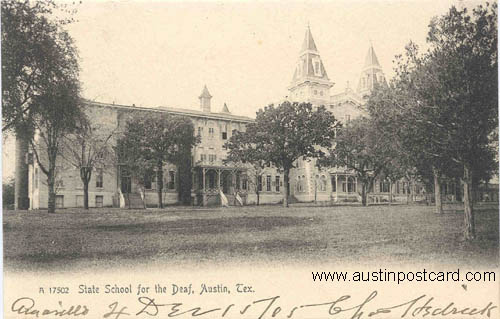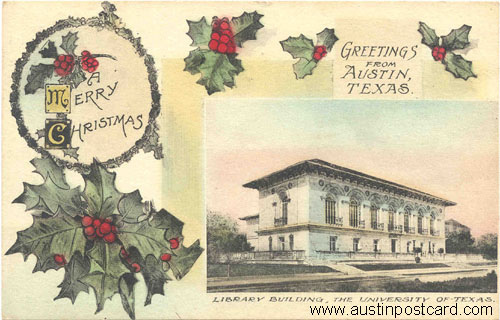Check out these old school postcards of Austin.
Last week, I wrote a rather contentious piece about preserving Austin going forward, and how our own history, and the history of other cities (like Detroit) can teach us things about our future. There was lots and lots of feedback. Some positive, some negative. This is the way most things in reading about or studying about or writing about history happen. I’m not really a fan of the theory that “those who ignore history are doomed to repeat it,” but I do think that history is sort of like an unfolding story: what happens in Chapter 8 likely happens because of what occurred in Chapter 4. There is a method to the madness.
It occurs to me that when you look at history, especially the history of a city like Austin, it is a rather elastic thing. There is virtually never consensus. There are countless angles from which to have a perspective — countless points of view. What I’m trying to get at here is that history is a way in which we understand each other; a way to see the world through what we already understand about it. But we don’t always agree about that. And though history is sometimes contentious and argumentative, it is also at times interesting and inspiring.
Back when I was doing an internship for my degree, I worked at a History Museum’s archives in rural Ohio. A part of my job was to take boxes of unorganized pictures, post cards, maps, drawings and so on and put them into some reasonable order that could be used in the museum’s library. Most of the work was dull and monotonous: hours upon hours of sifting through tossed-aside reels of family photography, pictures of random and indiscernible trees; that kind of thing. But for every mountain of inconsequential images that I saw, I’d come across an incredibly interesting one, or one that made me want to research something myself. I came across adjacent pictures of a small Ohio town, that showed the difference in businesses in that town before and after the rise of the automobile. Dozens upon dozens of businesses that provided carriage services had simply vanished. Another picture from the early 20th century showed me the remains of a house fire, an early fire engine and the firemen’s amusing uniforms, and a little girl, nameless, staring into the camera lens while holding a stuffed animal.
Everyone, inevitably, would look at those pictures differently — would be inspired or discouraged in a different way, would feel intrigue or frustration or sadness. Everyone is left to draw their own conclusions.
I’ve been holding off on this post for a while. It’s something I thought would be best served for a week in which what those interested in history seek to accomplish could be better described through images instead of words. I think this is a perfect week for that example. There is an excellent web-site out there — a site I’ve used multiple times in the past for imagery, that provides some of the best early-Austin pictures around. This place is Austinpostcard.com, a virtual library of historic post cards from Texas’ Capitol City.
To me, it’s like its own little miniature Wikipedia — a place I could click around aimlessly and randomly for hours, getting lost in the photography and art. I hope you enjoy it as much as I have, or if you’ve already known about it, I hope it will allow you to share something unique: an original Austin story or an anecdote about one of the images there, that bring it all closer together.
Presented below without comment are some of my favorites. Have a good week everyone!
Related posts:
- You think it’s rained a lot this summer, check out these pics of Austin from the Great Flood of 1935! Austin's had a lot of rain this summer--but nothing compared...
- 3 Simple Tricks to Help Keep New Years Financial Resolutions in Check WIth January down, Rachel is still holding her resolutions. Find...
Related posts brought to you by Yet Another Related Posts Plugin.
Staff favorites
- Migliori Casino Online
- New Non Gamstop Casinos UK
- Non Gamstop Casinos
- Casino Not On Gamstop
- Casino Not On Gamstop
- Best Non Gamstop Casinos
- Best Non Gamstop Casinos
- UK Online Casinos Not On Gamstop
- Sports Betting Sites Not On Gamstop UK
- Online Casino
- オンラインカジノ
- Casino Sites Not On Gamstop
- Non Gamstop Casinos UK
- Non Gamstop Casinos
- Non Gamstop Casinos UK
- Casino En Ligne
- Casino Zonder Cruks
- Casinos Not On Gamstop
- UK Casino Not On Gamstop
- Casinos Not On Gamstop
- Betting Sites
- Non Gamstop Casinos
- Casino Non Aams
- Casinos Not On Gamstop
- Non Gamstop Casinos UK
- Meilleur Casino En Ligne Belgique
- Casino En Ligne Belgique
- Casino Online Non Aams
- Site Paris Sportif France
- 라이브 카지노 사이트
- Casino En Ligne 2026
- Casino En Ligne Fiable

